Get involved
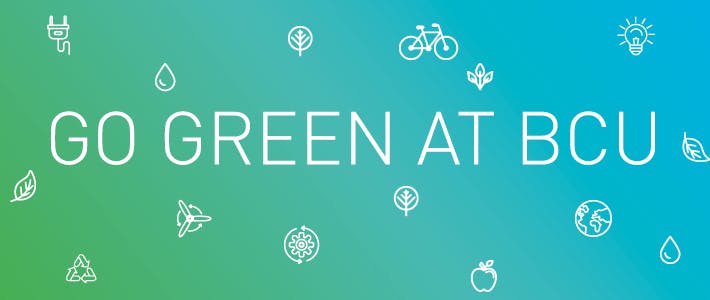
At Birmingham City University we aim to embed sustainability into our processes, curriculum, and provide a range of activities, engagement and training for staff and students. Our Environmental Communications and Engagement Strategy outlines our current initiatives and future plans for communicating environmental messages and engaging with key stakeholders. Keep up-to-date on our activities by following us on Instagram @bcu_sustainability or signing up to our environmental mailing list. We currently offer the following ways to get involved or learn about the environment and what we do:
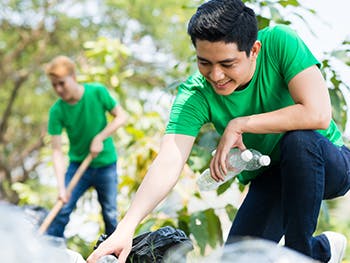
Staff environmental awareness training
Staff Environmental Awareness Training is mandatory for all staff members including new starters and must be completed every three years. It can be accessed via the Learning module on ERP.
Student environmental awareness training
Student Environmental Awareness Training modules will soon be incorporated into our Graduate+ Awards Programme. Graduate+ is an extra-curricular awards framework which complements any degree, turning high-calibre students into work-ready graduates.
Environmental Committee
Our Environmental Committee meets three times per annum and addresses issues relating to all environmental areas including the Environmental Management System, energy and carbon management and travel planning. The Committee helps to develop and review our environmental policy, objectives and targets. The Committee is formed of key members of staff from across the University. The Committee also has student representation, with a member of the Earth Society and at least one BCUSU Elected Officer taking part.
Staff Environmental Champions
We have an environmental champions network, which includes staff across a range of disciplines and areas across the University. If you are a member of staff and interested in becoming a champion, please email environment@bcu.ac.uk with your name, job title and a brief description of why you are interested in joining the network. Please speak to your line manager before signing up.
We have an environmental champions meeting at least three times a year and have a very active Microsoft Teams group.
Sustainable Students Group
We have set up a Microsoft Teams group for students interested in environmental and wider sustainability issues. We share updates about relevant events, news and activities. To join the Sustainable Students Teams group, search for it on Teams or get in touch.
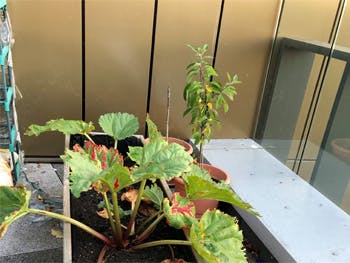
Newsletter updates
If you would like to keep up-to-date with BCU and local events, campaigns and volunteering opportunities, sign-up to receive email updates from the BCU Environmental Team. You can also register your interest with other initiatives. Please use your BCU email address when registering.
Onsite food growing spaces
We support staff and students, including the Gardening Society, to grow food on campus by providing suitable space, planters and resources. We have an onsite allotment at City South Campus and food planters on the Curzon roof terrace at City Centre Campus. Students and staff can get involved, learn something new and grow their own vegetables, fruit and herbs. For more information on how to get involved, get in touch. The photos above and below show some recent rhubarb and tomato plants that have been grown by BLSS students.
Hedgehog Friendly Campus
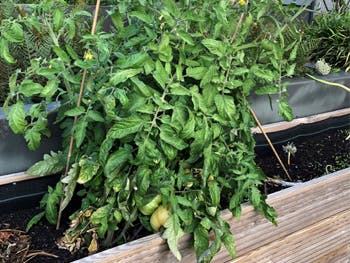
Students are staff can help to make BCU a Hedgehog Friendly Campus (HFC) by joining our HFC Working Group. Find out more on our biodiversity page.
Events
We host a range of environmental events throughout the year to get involved in, including the chance to volunteer. See our Events Page for more information. Get in touch if you are interested in volunteering.
Education for Sustainable Development
There is lots of support available for staff interested in embedding sustainability into the curriculum, including a MS Teams group, courses and workshops. Find out more on our sustainable curriculum webpage.
Bicycle User Group
Join the BCU BUG! We have set up a Bicycle User Group on MS Teams; a place to share information and offer support to BCU staff and student cyclists, and potential cyclists. Use the group to discuss cycling-related issues, including advice on commuting, leisure routes, facilities and events.
Find about more about support with cycling on our travel webpage.
Waste and Resources Task Group
Interested in encouraging better waste and resource practices? Our Facilities Contracts Team have set up a Waste and Resources Task Group that all students and staff are welcome to join. Contact Julie Stanyer if you would like to get involved.
Student Switch Off
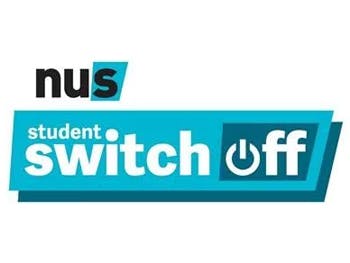
BCU halls of residence are taking part in the Student Switch Off campaign. Residents of BCU halls will compete to save the most energy, water and recycle the best. The winning hall will be crowned the Student Switch Off champion and rewarded with an end of year prize.
If you are staying at University Locks accommodation and want to reduce your impact on the climate crisis by taking personal action in halls this year, contact Uni Locks.
The Students' Union and societies
Our Students' Union (SU) strongly supports the environmental agenda, and is keen to get involved with projects and make a difference. A BCUSU Environmental Committee has been set up to push SU environmental projects and student engagement forward. In 2015/16, the SU achieved Gold in the Green Impact Student Union scheme and they have submitted the application for 2023. They have led successful canal clean-ups, and supported Go Green Weeks at the University.
If you are a student, you can join the environmental SU Earth Society and SU Gardening Society.
Look out for social media updates, posters around the campuses, newsletter updates and data on our digital screens as a few ways we will keep in touch about environmental matters.
Quick tips to be sustainable
Everyone can help to reduce BCU’s carbon emissions and live sustainably. Here are our top ten tips:
Check out our guide to being sustainable while working and learning from home.